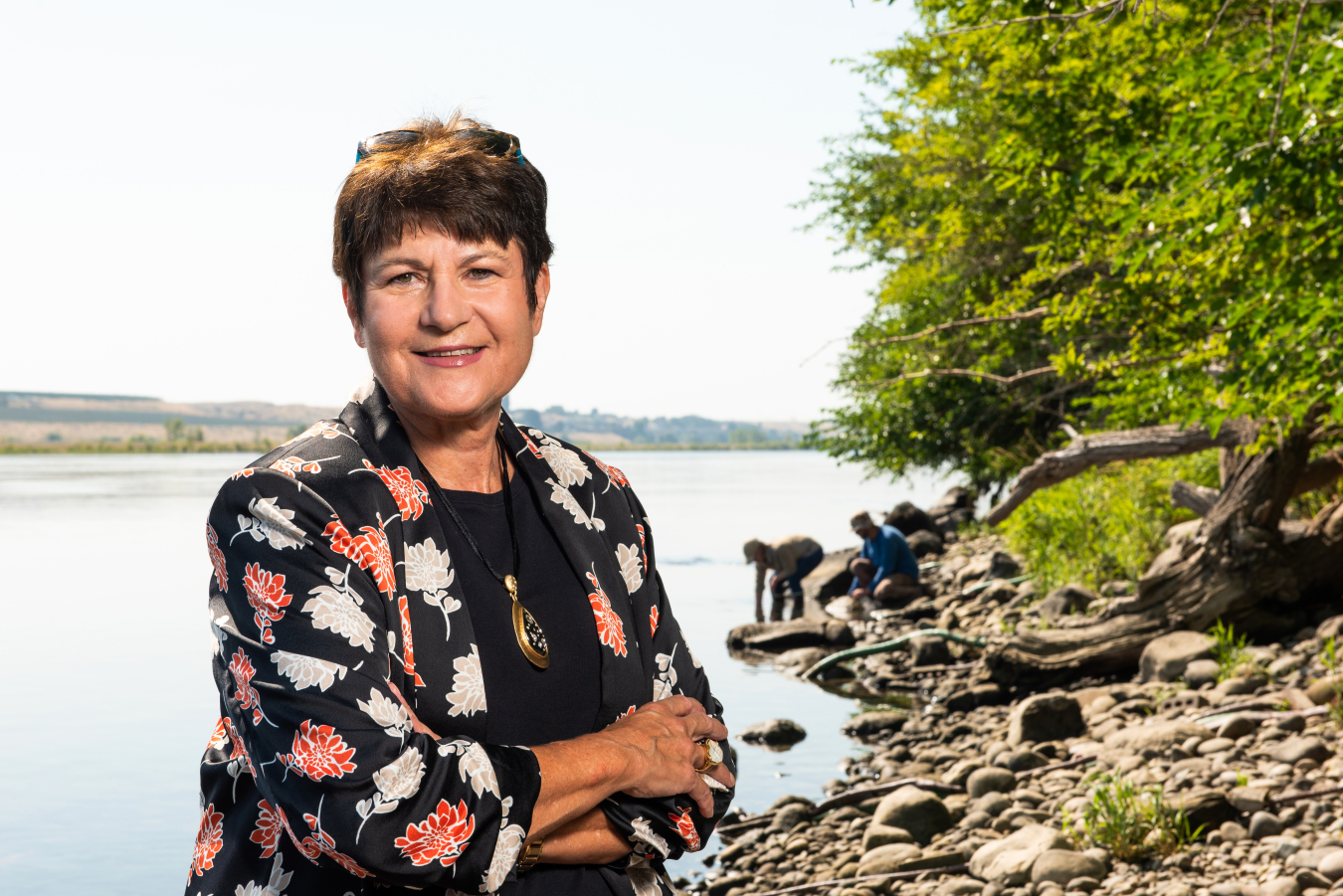Learn why Dr. Charlette Geffen loves her job as the Chief Science and Technology Officer and Director of Research Strategy for PNNL.
August 16, 2019
As the Chief Science and Technology Officer and Director of Research Strategy for Pacific Northwest National Laboratory's Earth and Biological Sciences Directorate, Dr. Charlette Geffen provides scientific leadership for the development and execution of strategies to advance our science and technology programs and new science and engineering capabilities. She also has the lead responsibility for managing our research portfolio for the Department of Energy sponsors in the Office of Science, Biological and Environmental Research Programs. Dr. Geffen’s work supports the U.S. Department of Energy's mission to ensure a national, sustainable energy system. She earned a Ph.D. in Technology Management and Planning/Civil and Environmental Engineering at MIT, an M.B.A. from the University of Washington and a bachelor’s degree in civil engineering from Stanford University.
What inspired you to work in STEM?
I had always taken classes in science and math but planned on being a liberal arts/journalism major when I went to Stanford. An introductory class in civil engineering changed my mind and my career path. I saw that engineering provided the opportunity to impact society with exciting new science and technologies that also preserved and supported our natural environment. A problem solver by nature, I discovered that a science and engineering background opened the door to addressing a wide variety of technical and societal challenges. In today’s environment, that basic STEM understanding is more important than ever, for a whole variety of fields.
What excites you about your work at the Energy Department?
I am delighted to be supporting research that is transforming the nation’s ability to understand our planet and how both natural and human systems interact and respond to environmental change. Our work is improving our ability to predict extreme events and enable more effective understanding of Earth system stability and how to more effectively manage potential risks. Only at a national laboratory would I have had the opportunity to build an integrated team that can truly explore the atmosphere-land-water-energy systems, and the dynamic feedbacks among these systems, with a robust approach that links measurements to models at a variety of scales. It is so exciting to work across disciplines to combine laboratory research, field measurements and observations with process, regional and global Earth system models, providing insights and outcomes that impact important decisions at the national and global levels. Our collaborative enterprise is improving scientific understanding of how Earth system processes, land management and use, and energy technology choices affect future weather and climate. Our goal is to provide new insights that help leaders manage risks and cope with accelerating environmental change and its impacts while meeting society’s energy demands.
How can our country engage more women, girls, and other underrepresented groups in STEM?
For students beginning their exposure to science and engineering, it is critical to provide more support and opportunities to engage with role models at the middle school level. It can make a big difference to teach science and engineering with hands-on, practical experiences that bring out the fun in our work. My volunteer activities have focused on building extracurricular science activities with middle school students, and it is exciting to see the projects these students create. Helping students understand the breadth of potential career opportunities is also important. The other area of focus needs to be on expanding the career opportunities for senior scientific leaders, to retain senior leaders in the research environment.
Do you have tips you'd recommend for someone looking to enter your field of work?
Build a strong foundation in the science or engineering discipline of your choice and add to those skills in both oral and written communication. Find mentors you enjoy working with who are in positions to which you aspire. Learn as much as you can from everyone you work with; the building blocks of a successful career will include your science or engineering skills, communications, project management, teamwork capabilities and leadership skills. Finally, be willing to share that knowledge with others who come after you!
When you have free time, what are your hobbies?
I enjoy spending time with my family and friends, participating in outdoor activities, such as boating, biking, hiking and hanging out at our amazing Columbia River, nature in action!
Learn more about our programs & resources for women and girls in STEM at http://www.energy.gov/women

